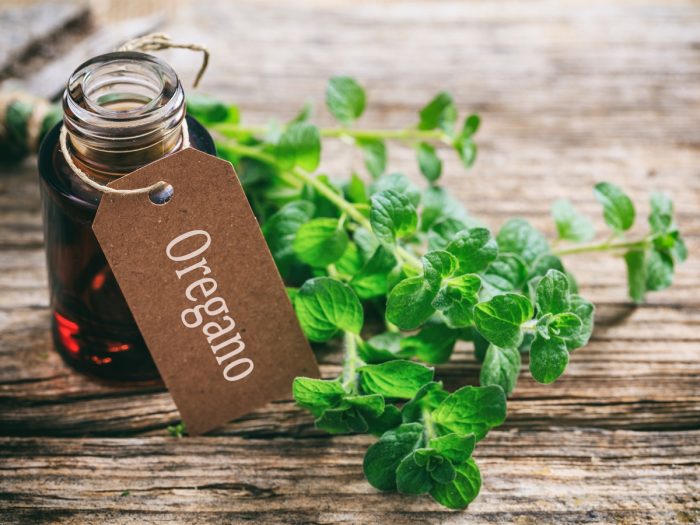We all know about oregano, the famous Italian herb, commonly used as a topping on the various kinds of delicious pasta and pizzas. But there is also a more concentrated version of it, which goes by the name of oregano essential oil or oregano oil. It is often used as an herbal supplement due to its amazing health benefits which include fighting inflammation, infections, and parasites. Not just that but it is also known to improve gut health and digestion. Amid all these good aspects of this oil, what often goes unnoticed is the fact that it also has a few side effects, which range from mild to severe. Oregano oil side effects may include an allergic reaction, pregnancy-related problems, and blood-related disorders among others.
In this article, we talk about these oregano oil side effects in detail – how it may have certain negative influences on the body even though it has a rich nutrient profile. It is important to note that oregano oil is not usually used in cooking until and unless suggested otherwise or for some specific health condition. The most popular usage of this oil lies in its topical application over wounds or inhalation for some specific health conditions. Given that, let’s take a look at these side effects below.
Oregano Oil Side Effects
The main side effect of oregano oil lies in its over-consumption. Unlike its herb counterpart, oregano oil is very concentrated. This makes it easy to take too much of it at once. Always use this oil as directed by your doctor, herbalist, or any other medical professional. An ideal dosage should not exceed one-two drops at a time. Too much oregano oil can be damaging to your health. [1]

Oregano oil Photo Credit: Shutterstock
- Thymol: Many researchers believe that this is due to the presence of thymol in oregano oil. Thymol, when taken in high doses, can irritate the skin or internal organs. It may also cause nausea, vomiting, stomach problems, hyperactivity, and skin and eye irritation among other side effects. [2]
- Allergy: There may also be side effects for those who are allergic to oregano or the other plants in the same Lamiaceae family. These include mint, sage, basil, rosemary, perilla, lavender and more. In such a case, do not use oregano oil.
- Skin Rash: Oregano oil may cause a skin rash when topically applied, whether or not you are allergic to it. It is important to only use oregano oil after properly checking with your doctor.
- Pregnant & Breastfeeding Women: There is also no research evidence supporting the efficacy of this oil for treatment among children, pregnant or breastfeeding women, as per a research published in Drugs and Lactation Database. It might increase the risk of a miscarriage or cause uterine contractions among pregnant and breastfeeding women. [3]
- Bleeding Disorder: It is suggested that people with a bleeding disorder should not take oregano oil, as it increases the risk of over-bleeding. For this reason, it is also advised to stop the usage of oregano oil at least two weeks before a scheduled surgery.
- Hypoglycemia: The presence of carvacrol in oregano oil may enhance the risk of hypoglycemia. It is shown to reduce serum glucose levels in the body. This may interact with the drug medication that someone might already be taking for the said condition, leading to excessively low blood sugar levels and further complications. [4]
Final Takeaway
It is strictly advised to see a doctor if you experience any discomfort after using this oil. This discomfort may come in the form of a rash, palpitations, or an upset stomach. Inhalation of oregano oil, in case of an allergy, can severely damage the air passage and cause inflammation as well. It is also suggested to see a doctor if you experience fatigue, muscle pain, headache, and any difficulty while swallowing food. Moderation is advised during usage and a medical prescription is even better.
